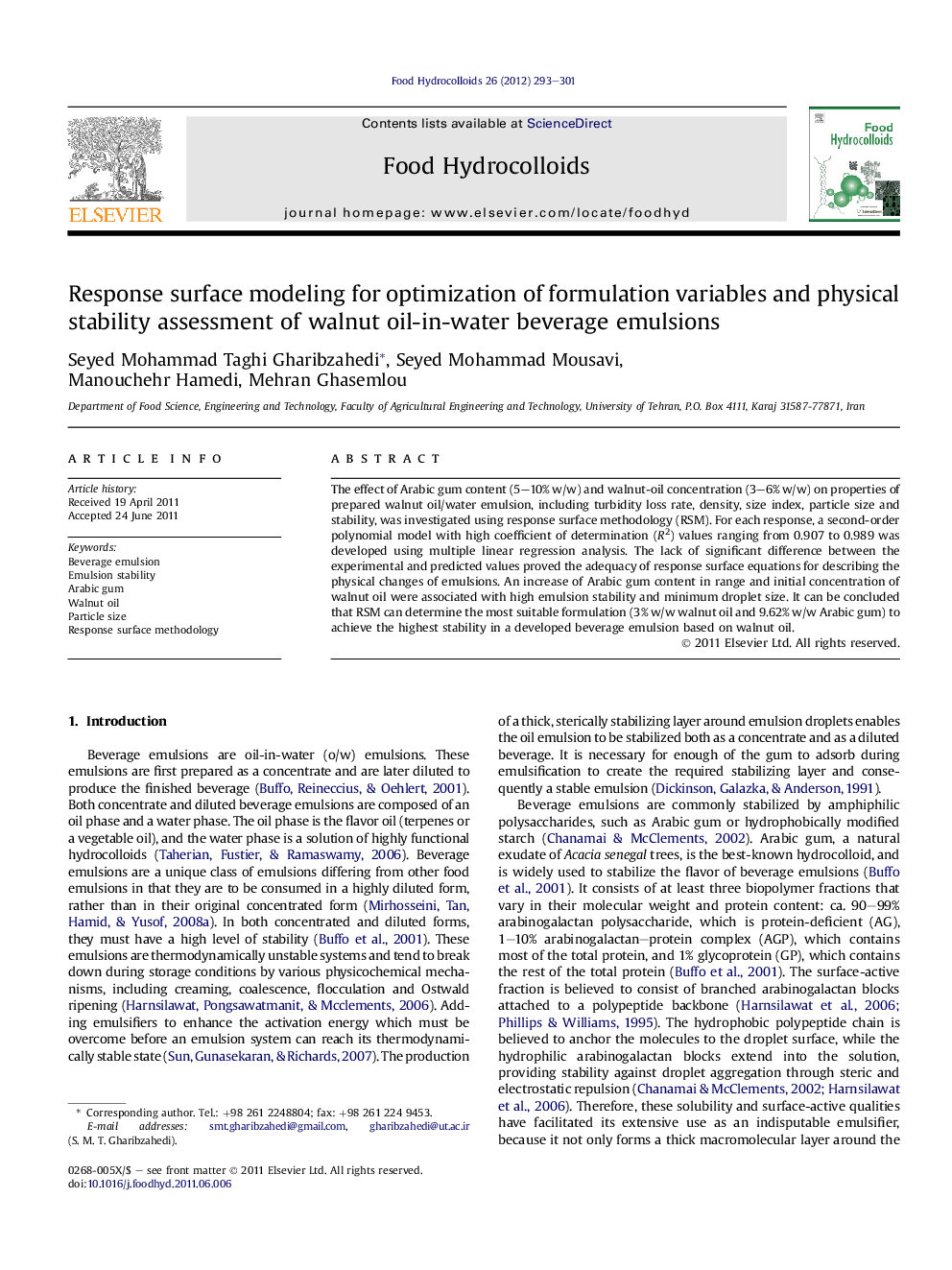| Article ID | Journal | Published Year | Pages | File Type |
|---|---|---|---|---|
| 605008 | Food Hydrocolloids | 2012 | 9 Pages |
The effect of Arabic gum content (5–10% w/w) and walnut-oil concentration (3–6% w/w) on properties of prepared walnut oil/water emulsion, including turbidity loss rate, density, size index, particle size and stability, was investigated using response surface methodology (RSM). For each response, a second-order polynomial model with high coefficient of determination (R2) values ranging from 0.907 to 0.989 was developed using multiple linear regression analysis. The lack of significant difference between the experimental and predicted values proved the adequacy of response surface equations for describing the physical changes of emulsions. An increase of Arabic gum content in range and initial concentration of walnut oil were associated with high emulsion stability and minimum droplet size. It can be concluded that RSM can determine the most suitable formulation (3% w/w walnut oil and 9.62% w/w Arabic gum) to achieve the highest stability in a developed beverage emulsion based on walnut oil.
Graphical abstractFigure optionsDownload full-size imageDownload as PowerPoint slideHighlights► We developed walnut oil/water emulsions stabilized by Arabic gum (GA). ► The best formulation to produce the GA-stabilized emulsions was optimized. ► Response surface methodology has been successfully employed for this optimization. ► The models were quite accurate as the percentages of error were in a good agreement.
